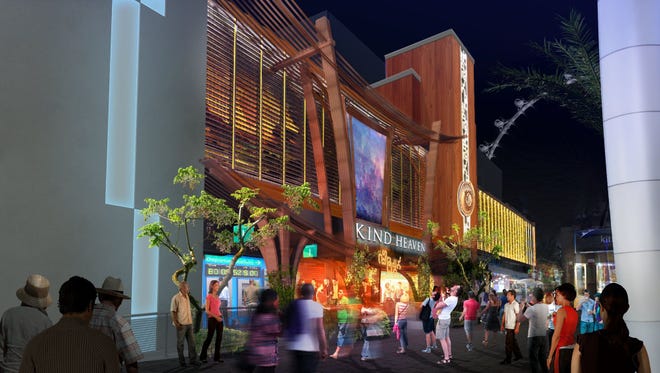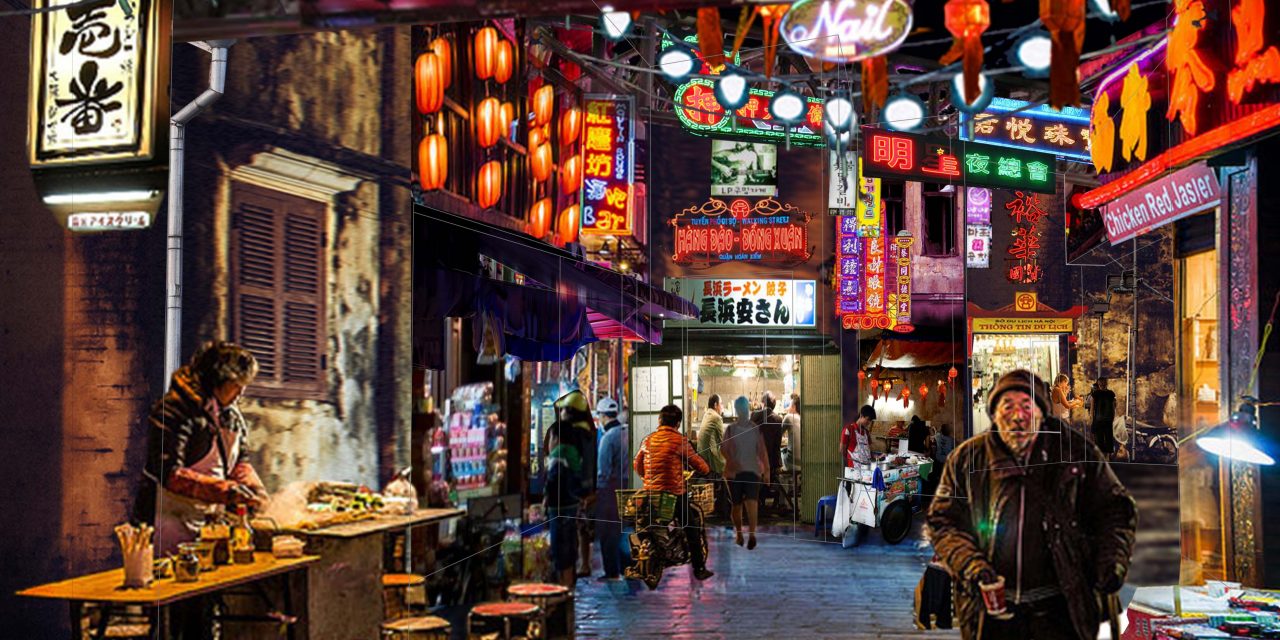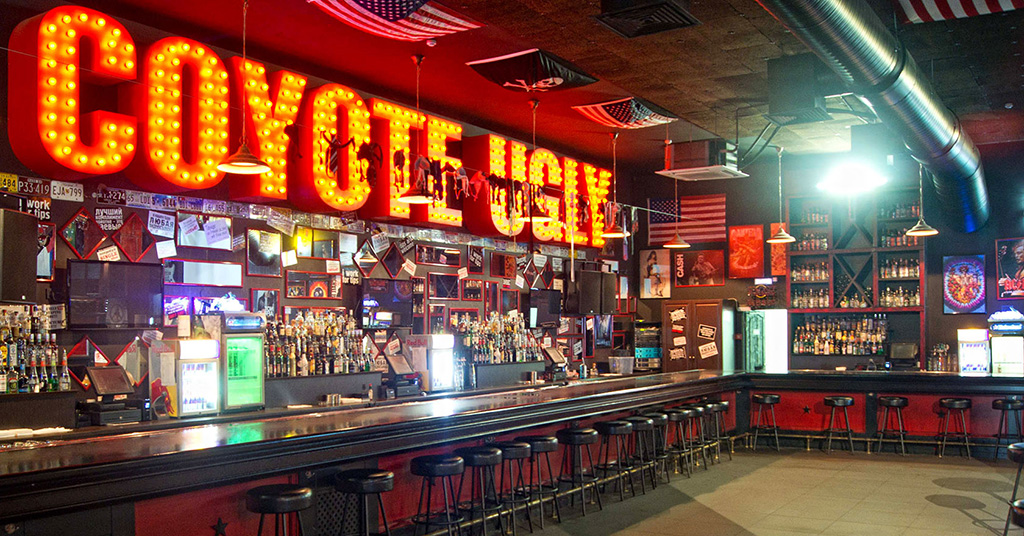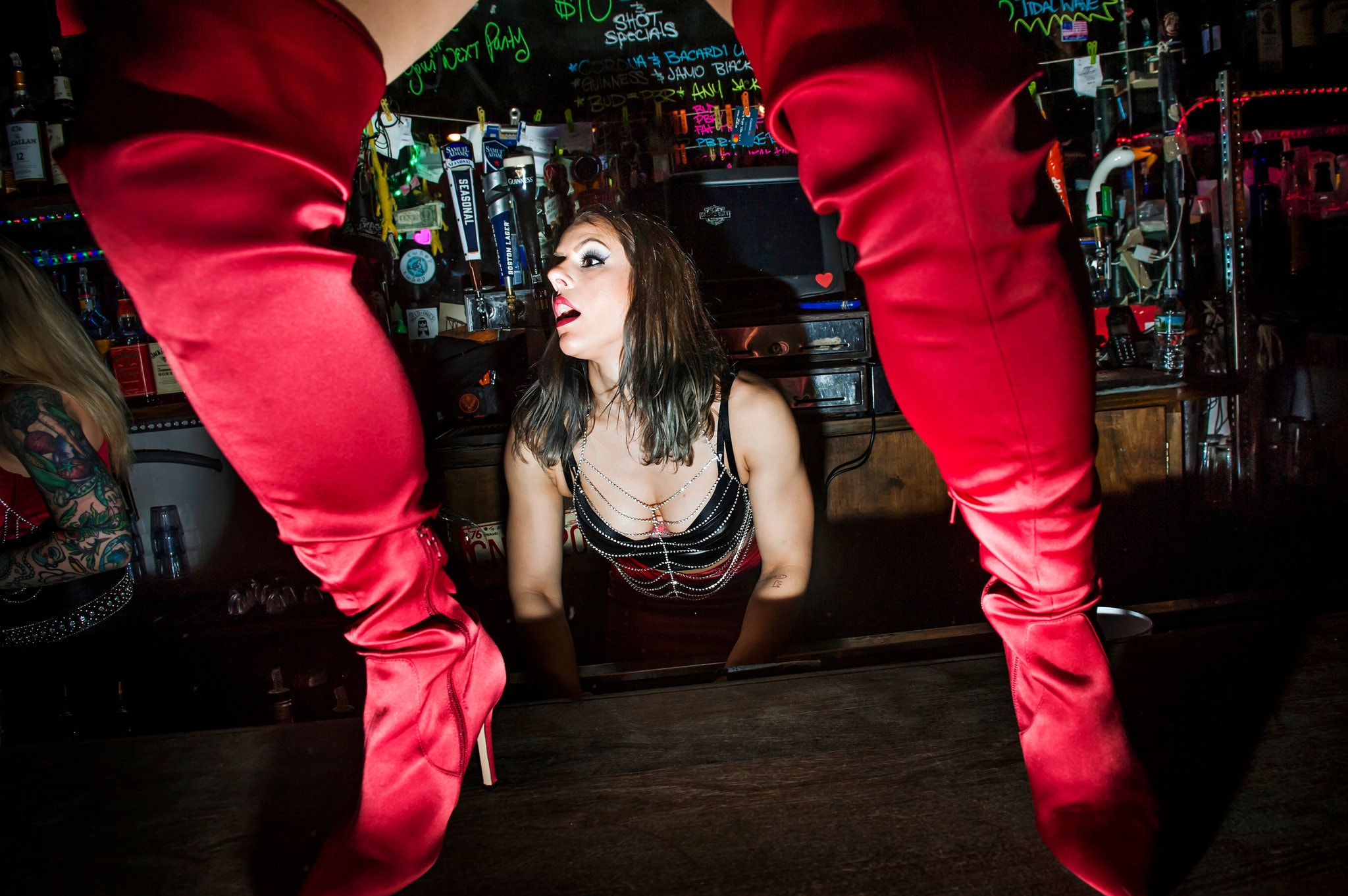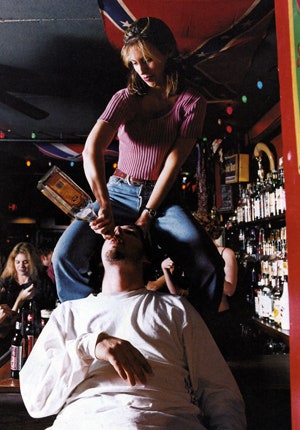There is a lot of talk these days about essential workers and essential jobs. I for one, am very thankful for our essential workers, especially the hospital staff who are on the front lines fighting this covid-19 pandemic. But what about the rest of us? I am not a first responder, my partners and I own a chain of bars, does it mean that we are non essential? Our industry, the Hospitality Industry, was one of the hardest hit by this pandemic. To add insult to injury, it will most certainly be the last one to recover. Are bars and restaurants just a frivolous business with nothing of real value to offer? Just how important is the hospitality industry to our society? What role, if any, has the tavern owner played in human history? Do they simply just supply the town drunk with their necessary libations to make it through the day, or does the tavern owner have a more profound impact on society and our nation as a whole? Perhaps maybe, tavern owners are essential to our lives in a different way.
The history of the tavern’s impact on society has deep roots that can be traced back to ancient Rome. In the Roman Era, the tavern was used for Empire building. In fact, the tavern was so ingrained within the expansion of Rome that distance was explained by how many taverns you would pass to get to your destination. Every 15-20 miles, there was a tavern erected as a rest stop to resupply the battalions of soldiers as they expanded across Europe and the middle east. The tavern served as a hotel, a restaurant, a supply depot, and a makeshift hospital for the Romans, but what about right here in the United States? What role did the tavern play when settling the New World in the west?
For the past 200 years, the tavern has been the birthplace of radical social change here in America. The role of the tavern is profoundly woven into the early fabric that helped forge this nation into the most prosperous country in history, the United States. One notable example was a group of men in Boston, that included Samuel Adams, Dr. Joseph Warren and Paul Revere. This group of influential gents gathered to discuss the events and politics of the day over a pint of ale at the Green Dragon Tavern. It’s not hard to imagine that group with their glasses in the air, clanking into one another, toasting to independence from the crown and ending unfair British taxation. This group of well lubricated troublemakers would later be referred to as the Boston Caucus and the Green Dragon Tavern became the birthplace of the American Revolution.
“Upon all the new settlements the Spaniards make, the first thing they do is build a church, the first thing ye dutch do is upon a new colony is to build them a fort, but the first thing ye english do, be it a remote part of ye world, or surrounded by ye barbarous Indians is to a set up a tavern or ale house.” – Captain thomas waldot 1708 (America Walks into a Bar, by Christine Sismondo)
What Captain Waldot didn’t know at the time, was that not only would the tavern play a major role in the American Revolution nearly 60 years later, but it would also have an integral role in settling the new world from coast to coast over the next couple hundred years. The tavern substituted for absent architecture in all the British colonies and was most often, the first structure erected in a new community. The City Tavern in New Amsterdam (Manhattan today) for example, served as the central market for merchants and traders, as the public auction house, as city hall and it was the prime place to post public notices. The tavern was the defacto courtroom, post office, library, news center, town hall, community center and church. It should come as no surprise, that some of the earliest examples of legislation in the New World, were that each town needed to establish a tavern.
Many years later, tavern owners allowing freed men and slaves/indentured servants to drink and socialize together in New York, eventually led to an uprising and helped plant the seeds for the most famous presidential speech in history, where Abraham Lincoln (who once owned three taverns) said, “all men are created equal”. Tavern owners played a role in the operation of the Freedom Trail and the Underground Railroad, helping hide, shelter and feed an estimated 100,000 slaves as they fled southern oppression. Taverns located along the train tracks would assist former slaves fleeing their masters and helped usher them to the safety of the north.
Ben Franklin had a group of drinking buddies called the “Junto Club” in 1727 formed at the Indian King Tavern in Philadelphia, with the purpose of “improving daily life of society”. This drinking club of about 11 members, would eventually grow into the American Philosophical Society.
So the next time your significant other says, “nothing good comes out of going to bars”, you can remind them of these stories, for taverns have played an essential role as the birthplace of radical change.
The tavern and political action have been tied together long before the Mayflower ever hit our eastern shores. The Romans had symposiums where they would share food and wine while discussing politics of the day. Even the gruesome tale of the Salem Witch trials has ties to the bar industry with 3 of the first 5 people executed for witchcraft, happened to be tavern owners. They were upset about an unfair tax levied on them by the magistrate John Hawthorne. This may be our nation’s first example of rural vs urban politics and it was the tavern owners that first pushed back. In fact, tavern owners have a colorful history of revolting against and subverting unjust laws. Rules controlling bars, alcohol consumption and the act of toasting, go back to the Roman Era. In the USA, racism heavily influenced regulation of the bar industry. Some of the earliest laws about drinking in the United States were targeting and banning Native Amercians from drinking in bars. These rules would later be extended to other ethnic groups, indentured servants, sailors, and eventually women. These rules were generally accepted because of the rampant stereotypes that labeled these groups as being unable to hold their liquor.
Tavern owners and famous American lawyer Clarence Darrow fought the Ku Klux Klan in the 1920s. Most people are unaware of the relationship between the KKK and prohibition. There was a revival of the Ku Klux Klan and membership was exploding under the guise of enforcing Prohibition. The Klan’s main targets at the time were immigrants from southern and eastern Europe, especially the Catholic ones. Many of the advocates of Prohibition, who were white, Anglo-Saxon Protestants, were also tied up in anti-immigrant and anti-catholic groups, because they were not thought of as “real Amercians”. The anti-saloon league felt that immigrants were threatening the U.S. way of life with their foreign drinking habits and wild saloons. Tavern owners pushed back against this on the streets by the creation of the “speakeasy” to subvert these unjust prohibition laws, while Clarence Darrow fought them in the courts and on December 5th, 1933 Franklin Roosevelt signed the 21st amendment ending prohibition for good.
There are modern examples of radical social change being born out of bars/taverns, but none more famous than the Stonewall Riots that started in the early hours of June 28th, 1969. A powder keg of tensions between the gay community and police officers had been growing over a few years and an explosion was set off by a late night police raid where employees and patrons were violently removed from the Stonewall Inn, a gay club located in Greenwich Village in New York City. It lead to six days of protests and violent clashes with law enforcement outside the bar on Christopher Street and was the catalyst of the gay rights movement not only in the United States, but also around the world.
When it comes to major social change, taverns have been one of our most essential institutions historically, but what about in our daily lives today? For me, as a tavern owner, my favorite thing about this industry is being part of so many pivotal moments in other people’s lives. You celebrate your birthdays or winning the big game with us and you entrust us to be a beautiful backdrop for asking the love of your life the most important question you will ever ask of anyone. We have helped you secure the biggest corporate deals of your lives, we have facilitated the successful mergers of many important companies, we have been the facilitator of joining people together for thousands of years. Perhaps, even more significant than any of that, is the true purpose of every bar. The one quality about bars and restaurants that we are missing the most on this twelfth week of quarantine… that bars and restaurants bring us closer together. Strangers become friends, business people become business partners and star-crossed lovers make lifetime promises to each other and they do it in our establishments, our bars, our restaurants, they do it in our taverns. The tavern is a sacred social space where people come to discuss the news, legal cases, religious and political issues, where we work out our differences and come together over the clinking sounds of pint glasses toasting. The tavern was the first place that freedom of speech really meant something and seemingly transcends most cultural differences and creates a universal language of togetherness.
The bar has been the birthplace of radical social change and maybe that is exactly what we need right now, radical change. What this pandemic has exposed, is just how significant the divides are between us, when we should be pulling closer together. Even in the face of a deadly virus, we stand divided, but isn’t this our first opportunity, EVER, to just hit the reset button? Can we emerge from this lockdown and create a better society for all of us? Rethink the way we do our jobs, where our products are made, how we can restructure the work day so that the balance between family and career is better for all of us?
The hospitality industry was in distress before this pandemic, what changes can we make now as we begin to reopen to address the issue? We are healing the earth by our actions these past 2 months, maybe it’s time we heal our souls. We as a nation have always been at our best when we stand together. No politics. No parties. Just Americans standing united, creating innovative solutions to the greatest problems facing humanity. When we work together, we accomplish great things, we reached for the stars and walked on the moon.
What our role is, as tavern owners, during this Covid-19 crisis is still yet unclear. Some of us have been able to pivot our businesses in incredible innovative ways to help our nation find our footing during this pandemic. Others of us are struggling. We are struggling because we have been told to do something that goes against our very nature. It goes against every ounce of our character as tavern owners, we are being told…to do nothing.
We have been told to close our doors. To put the stools up on the tables, not because it’s the end of the night, but because it’s the safest way we have of protecting ourselves, by not being around each other. We have been told to fall on the proverbial sword and shutter our bars until its safe to open them again. It will end many of our careers. It will shutter some of our favorite restaurants for good. We are committing financial suicide so others can live. We are doing it because the experts say it’s the right thing to do.
We have always sacrificed our own safety, for the greater good. This mental fortitude is in our DNA. DNA that has been forged by the evolution of the tavern’s role as a catalyst for radical social change throughout history. The Roman Empire, the British Empire, the wild west, prohibition, the kkk and police riots could not break our spirit, we have always found a way to persevere. Just like we had a role in defeating a tyrannical monarchy, in defeating slavery, defeating prohibition and our continuing fight in defeating bigotry, we will have a role in defeating Covid-19. Though, the role may not be obvious to us yet, just know that we are sacrificing, not just financially, but also spiritually. Despite the sometimes haphazard and unnecessarily cruel designation of non-essential, our resurrection will be instrumental in picking up the pieces of a broken nation, a hurting community, and a people in need of a connection to others.
That is the magic of our favorite taverns, clubs, pubs, lounges and dive bars, their ability to transport you from the mundane experiences outside of its sacred four walls into a universe all its own. It inspires that feeling of “anything could happen”, the anticipation of whom we will meet, could it be my future life partner, or even as simple as a break from the stresses of modern day work life in America. The energy you feed on in a crowded room, the sounds of silverware meeting china and conversations surrounding you create that atmosphere of possibility that hangs heavy in the air of our favorite watering holes, so heavy that it’s as intoxicating as the drinks themselves. It is the tavern keeper that conducts this magical orchestra, to create a world all of its own accented by dim led lights and ice-cold cocktails. The real product we sell is connection, unity, creating opportunities to toast to each other’s health… what we offer our guests is community…a family. What could be more essential than that?
We are leaders, we are fighters, we have a history of standing up to oppression, and there will be a moment, very soon, when all nations will lean on us again, the tavern keeper. We are ready. We will rise again and welcome our friends back with open arms (or socially distant air-high-fives) We will celebrate, innovate and continue to help shape our world. We have been training for this for thousands of years. Let us be the first to pour us all a shot, as we toast to emerging from our homes after this unprecedented period in history. Maybe if we can find common ground over a pint, we can find a way to forge a better society going forward for all of us?
Here is to you, the ever essential, Tavern Keepers.


